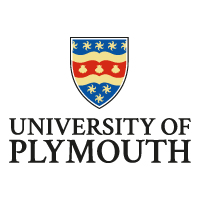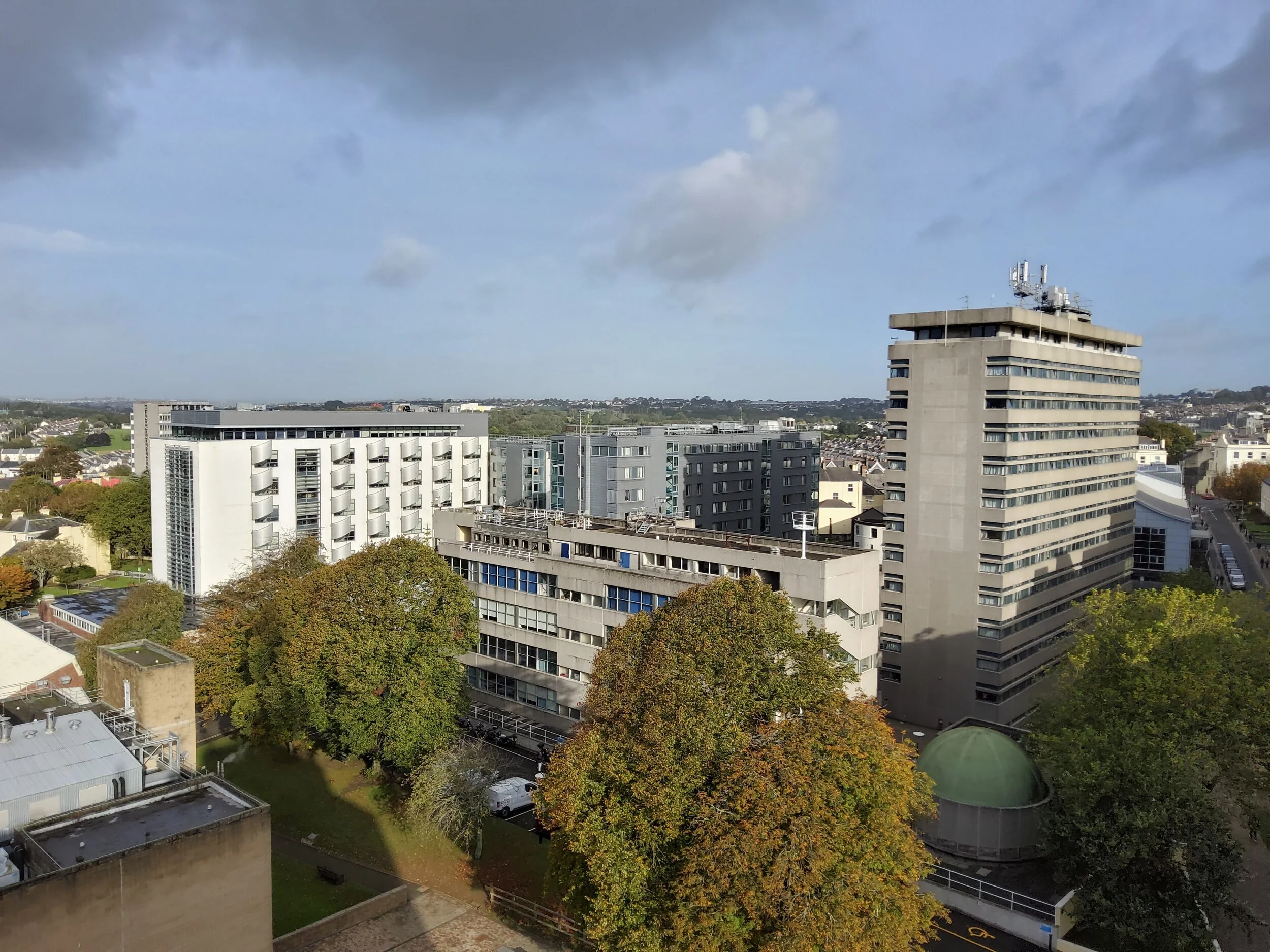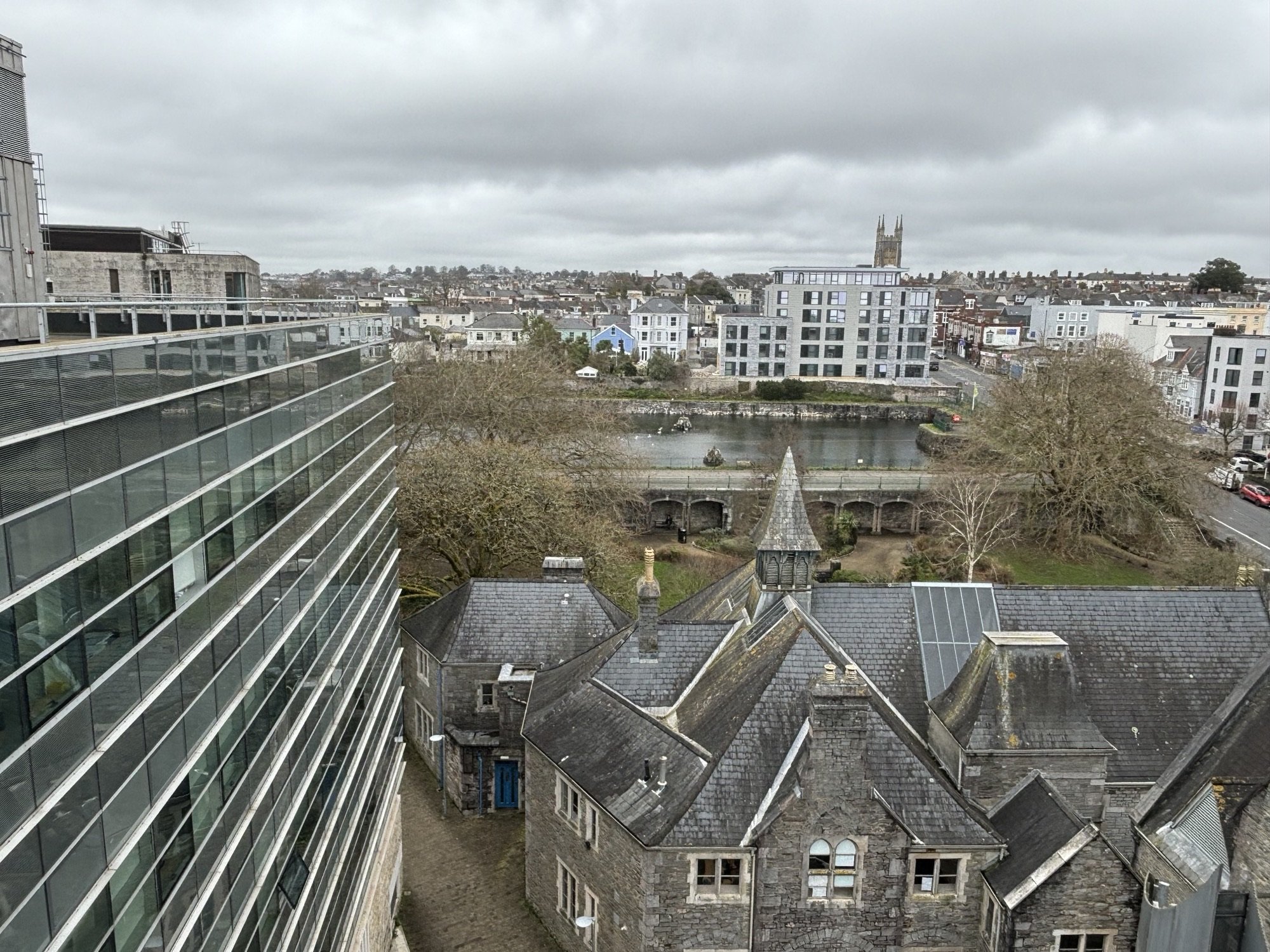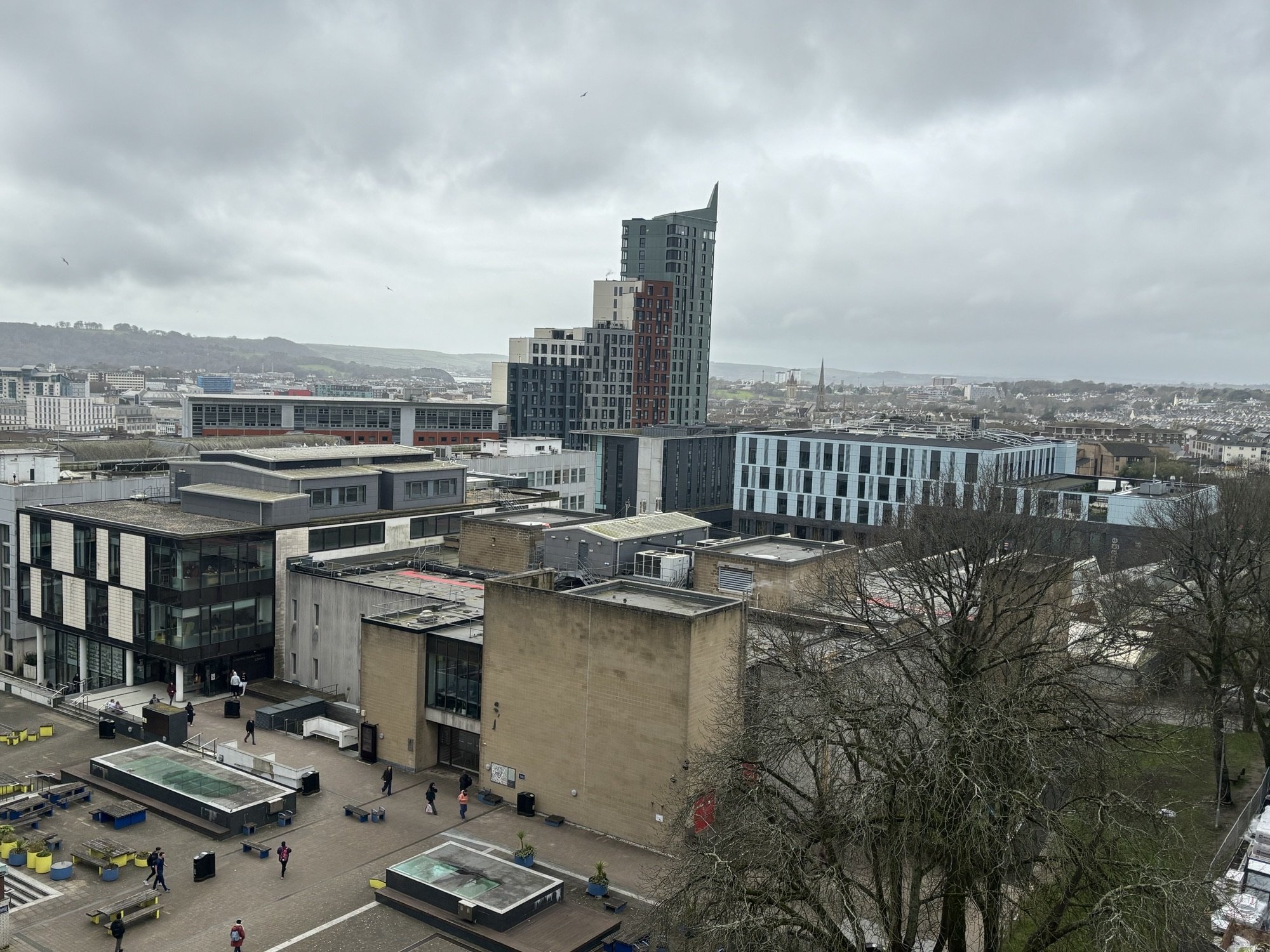University of Plymouth
Partnering with a Leading Higher Education Institution for Comprehensive HVAC Maintenance Services
JCW has proudly managed the Heating, Ventilation, Air Conditioning (HVAC), and refrigeration systems for this esteemed higher education institution since 2019. However, our partnership with the University of Plymouth extends back much further, beginning in 1998.
As the scope and value of the contract increased over the years, we established a satellite office in Plymouth to better support the University's needs. The 2004 retender marked another milestone, with the addition of boiler and ventilation services to our responsibilities. By 2010, the contract had further evolved to include air handling units and ancillary mechanical systems.
Read our case study to learn more about the growth of this long-standing and valued partnership.
About the University
As one of the top 300 universities in the world and a recipient of the Queen's Anniversary Prize for Higher and Further Education, the University of Plymouth is one of the UK's most prominent and dynamic Higher Education Institutions.
Service Coverage
Planned maintenance scope to the 77 university buildings, including Grade 2 listed student facilities, faculty buildings as well as staff facilities. With built age ranging from pre-war, post war and post 2000s:
The Relationship
The maintenance contract for air conditioning and refrigeration equipment was first awarded to JCW Bristol in August 1998. As the contract expanded in scope and value, it became clear that a dedicated local team was needed to manage, administer, and deliver the services effectively. This proposal was warmly received by the University Estates team, leading to the opening of a satellite office in Plymouth in 2000. From this new location, a full-time contract manager, administrative support, and a team of five engineers were based. While the Bristol office continued to provide backup support, the majority of communication and relationship management transitioned seamlessly to Plymouth.
In 2004, the contract was retendered to include boilers and ventilation systems, increasing the base maintenance value to £35,000 per annum. JCW successfully secured the new contract in August 2004, which was later extended until it was retendered in 2010. By then, the contract had grown to encompass air handling equipment and other mechanical systems such as pumps, booster sets, and pressure vessels.
Although JCW was not successful in the 2010 retender due to internal changes, the relationship with the University of Plymouth remained strong. Our contract manager stayed in close contact with the Estates team, providing ongoing support during transitions and assisting in the development of a comprehensive database of mechanical equipment in preparation for the 2018 tender. This proactive engagement paid off—after successfully completing the PQQ and ITT stages, JCW was awarded a new five-year contract starting in November 2019.
Most recently, JCW won the 2024 retender and commenced another five-year contract in November 2024, continuing our longstanding partnership with the University.
Our Delivery Team
Contract Management
The contract is overseen by Account Director Alan, who holds board-level responsibility, while Contract Manager Martin assumes overall accountability for its success. Martin is supported by Dave, a highly skilled and experienced HVAC Technical Engineer, who assists with the day-to-day operations of the contract alongside a dedicated team of contract engineers.
The contract is managed locally from our Plymouth office, which serves as the hub for delivering a variety of local HVAC services. This proximity enables the team to fully support the contract’s delivery, ensuring:
Service delivery aligns with legislative requirements and industry best practices in safety, health, environment, and quality.
Adherence to agreed SLAs, timescales, and performance benchmarks, achieving excellent results against KPIs.
Martin, a seasoned and fully qualified engineer, transitioned from his role as a senior engineer in the region to Contract Manager. Having been part of the initial team dedicated to the University of Plymouth contract since its inception in 2002, Martin brings a wealth of technical expertise and site knowledge that meets the client’s specific needs. Based on-site full-time, Martin oversees both his team and the contract’s operations with a hands-on approach.
Contract Administration
Olivia, an experienced contract administrator, played a pivotal role in the re-mobilisation and preparation stages leading up to the contract’s commencement in 2024. Her extensive background in administration and contract support has been instrumental in enabling Martin to effectively manage client relationships.
Olivia is a vital member of the Plymouth satellite office, providing dedicated administrative support to ensure seamless contract execution.
Resident Team
Our on-site team at the Plymouth campus includes a fully qualified air conditioning engineer, a fully qualified heating engineer, a junior HVAC engineer, and a plumber. This team handles all planned and reactive repairs.
Specifically assembled for this contract, the team operates as a cohesive and highly effective unit, delivering exceptional service to the University. Their combined efforts within this satellite operation consistently secure outstanding KPI results each month.
This successful collaboration has been a key driver in JCW’s steady expansion into Devon and Cornwall, further establishing our presence and reputation in the region.
Dave - HVAC Technical Engineer
a View of the Sherwell Centre from Portland Square
A view of the Babbage building
Why This Delivery Style Works
Strengthening the Client Partnership
To build and maintain a strong partnership with the University, we have implemented a single administrative point of contact and appointed a dedicated Contract Manager. Both roles have a well-established working relationship with the University’s Estates Management and Administrative Team. This approach has allowed us to adapt seamlessly to the expanded requirements outlined in the tender renewal process.
Faculty Equipment Integration
In close collaboration with the University’s Estates Team, we conducted a comprehensive survey of faculty-owned equipment. This survey identified which items require compliance maintenance, and we finalised a proposal to include these items in the maintenance contract. This initiative highlights our expertise in integrating new equipment into the client’s CAFM system and scheduling planned maintenance visits. Once departmental heads had approved the proposals, the maintenance program commenced. This proactive effort not only demonstrates our technical proficiency but also reflects our commitment to exceeding contractual obligations and delivering exceptional service.
In-Depth Knowledge of Critical Systems
Our team possesses extensive expertise in the University’s mechanical, electrical, and control systems that are vital to its operations. We continuously enhance this knowledge through collaboration with BMS partners, specialist contractors, and manufacturers. At the managerial level, this knowledge is integrated into decision-making processes, while our Engineering teams are equipped with the training and tools needed to provide immediate responses to emergencies. We also offer remote support to facilitate quick issue resolution.
Our resident team acts as Subject Matter Experts for the University’s critical systems, ensuring high levels of reliability and operational continuity. To further support our “First Time Fix” strategy and maximise cost efficiency, mobile engineers’ vans are stocked with technical investigation tools, essential equipment, and commonly used spare parts. This allows us to resolve most issues during the initial visit. After each planned maintenance visit, we assess the specific requirements of each building to compile a critical spares list. For obsolete systems, we provide recommendations for replacements or alternative solutions. These efforts culminate in a comprehensive, priced proposal to ensure engineers are equipped to maintain a high success rate for first-time resolutions.
Comprehensive System Integration
To fully understand the interdependent operations of each system and their critical interfaces, we actively collaborate with our BMS partner and specialist contractors. This partnership enhances our site knowledge and allows us to provide targeted workforce training, ensuring seamless system integration and effective management. (For additional information on BMS, refer to the next section.)
BMS Integration Project
As part of the University of Plymouth contract, we were tasked with incorporating the maintenance of the BMS controls into the HVAC agreement. This required integrating planned and reactive maintenance, remote monitoring of critical alarms, and bureau control services.
Over the past few decades, the University has experienced significant growth, acquiring new buildings and inheriting a variety of control systems. These systems - Continuum, Andover, Sigma, and Trend - had been operating independently as standalone setups.
During the initial six months of the contract, JCW worked with the University’s preferred controls providers to better understand the BMS systems and their specific requirements. However, it quickly became clear that this fragmented approach was not a viable long-term solution.
Challenge and Solution
The primary challenge was to create a unified solution that allowed all four BMS systems to communicate seamlessly through a single, common dashboard. This solution needed to encompass planned and reactive maintenance, remote monitoring, and first-stage rectification of critical alarms via an external bureau with 24/7 support, all under a single contract. The goal was to deliver a smooth, reliable, and cost-effective service for the client.
After a series of collaborative meetings with the client to determine the optimal approach, we partnered with a leading BMS company and Schneider to leverage their extensive experience. By combining their expertise with older systems like Continuum and Andover, as well as their knowledge of modern products like Trend and Sigma, we developed a fully integrated proposal tailored to the University’s needs.
Implementation and Training
Another key challenge was achieving an ideal cost structure. To address this, we arranged for JCW site-based engineers to attend a foundational training course with Schneider. This training provided them with a deeper understanding of the control strategies, which, when combined with their mechanical expertise, enabled them to become the first responders to callouts. This approach ensured compliance with the contract’s SLA requirements and frequently resulted in first-time fixes, reducing costs while maintaining high service standards.
The proposal was successfully accepted, and since implementation, the management of BMS controls, planned maintenance, and reactive callouts has become more streamlined. The client has expressed high levels of satisfaction with the service provided.
Future Developments
Looking ahead, we are collaborating with both the University’s energy department and the BMS company to address the impending obsolescence of the Continuum BMS controls. Together, we are working on a comprehensive solution to replace these controls and integrate all remaining systems into a single, unified platform.
Ongoing Monitoring and Client Satisfaction
To ensure ongoing success, we conduct regular contract review meetings—either monthly or as required by the client. These meetings include active monitoring of KPI data by the Account Manager and Director to ensure we consistently exceed expectations.
We also provide detailed Management Information Reports, summarising team activities and identifying any deficiencies in the installed systems. Through collaboration, flexibility, and consistent performance, our transparent and straightforward approach has been instrumental in maintaining strong client relationships and ensuring continued satisfaction.
Testimonial from the University’s Building and Engineering Manager:
“We have an excellent site-based team, the Contract Manager we have is outstanding. Their can do attitude is refreshing!”
Conclusion
JCW take pride in the success and longevity of the relationship with this long valued client. The sense of closeness and our immediate response to any problems are reasons why the University of Plymouth feel that they are “not just another client”.





















